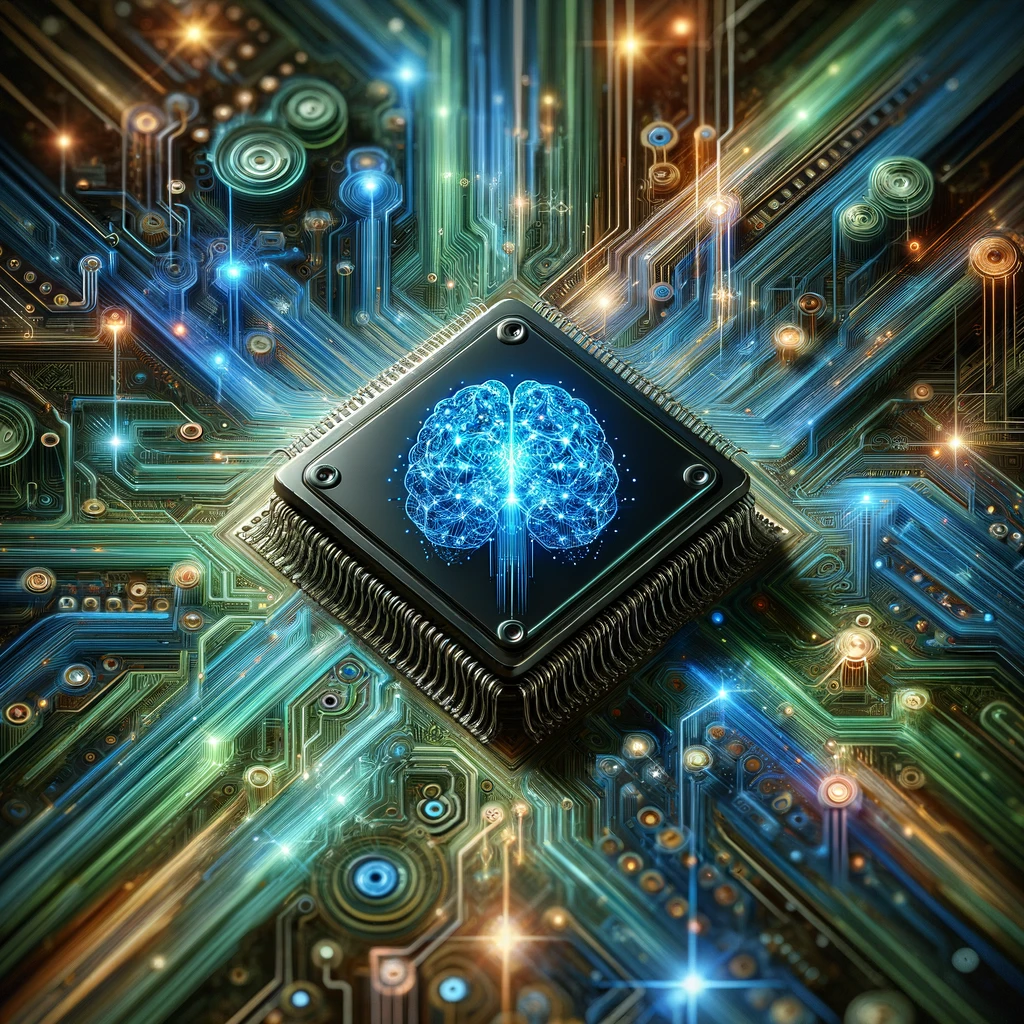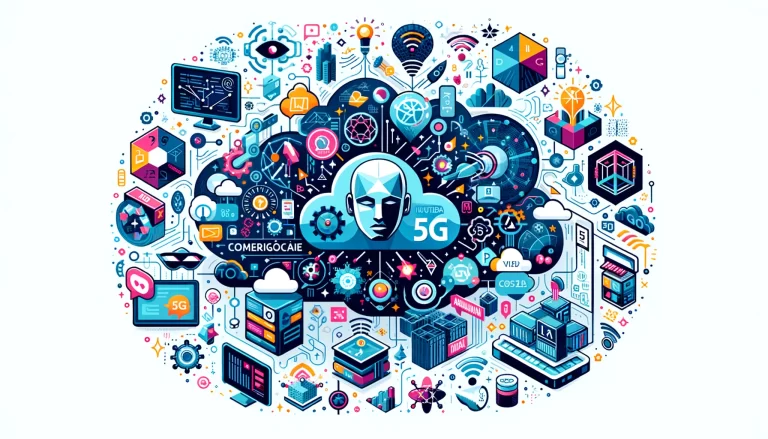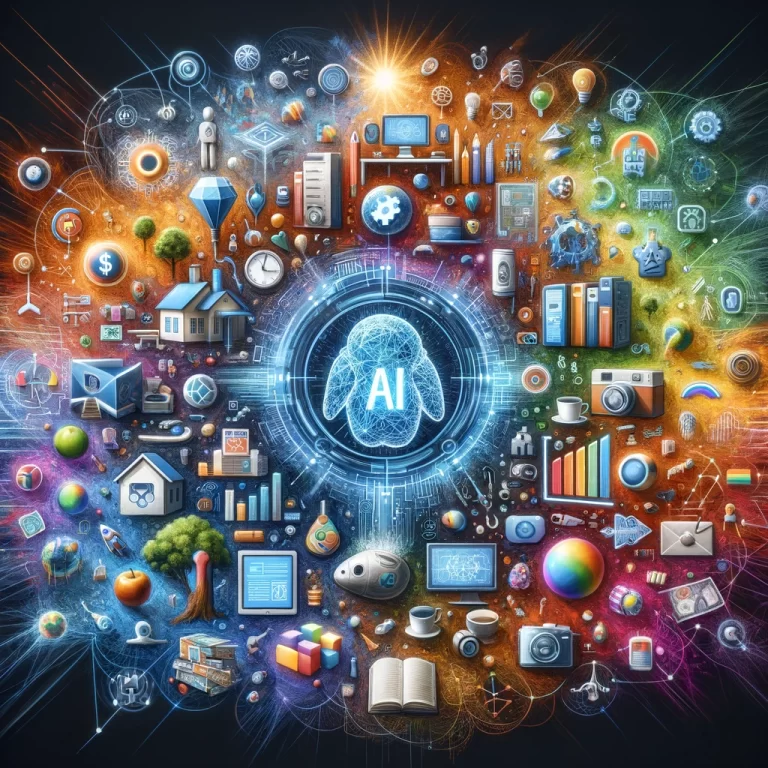Artificial Intelligence and the Revolution of AI Chips: Shaping the Future of Technology
At the dawn of the digital era, artificial intelligence (AI) emerged as a transformative force, redefining what’s possible across numerous facets of human life. From enhancing operational efficiency to creating personalized user experiences, AI is at the heart of an unprecedented technological revolution.
Among the most impactful innovations in this field is the development of AI chips, devices specifically designed to accelerate artificial intelligence tasks, making them faster, more efficient, and accessible.
These chips are the backbone of many modern AI applications, from smartphones and personal assistants to autonomous vehicles and advanced medical diagnostic systems.
As we explore the intersection of artificial intelligence with chip technology, we enter an era of limitless possibilities where AI not only informs decisions or automates tasks but also reimagines what technology can achieve.
This article delves deep into the revolution of AI chips, exploring how they are shaping the future of technology and driving the next wave of digital innovation.
Table of Contents

Understanding Artificial Intelligence in Chips
The integration of artificial intelligence into chips marks a milestone in technological evolution. AI chips, or AI processors, are specialized integrated circuits that facilitate artificial intelligence operations at the hardware level, enabling faster and more efficient data processing compared to conventional processors.
This specialization is made possible by innovative design that prioritizes AI tasks, such as machine learning and natural language processing.
The main advantage of AI chips lies in their ability to execute complex AI algorithms with greater speed and less energy consumption.
This is crucial for applications requiring real-time responses, such as facial recognition systems, intelligent virtual assistants, and autonomous vehicles.
Moreover, the energy efficiency of these chips means that portable devices and IoT (Internet of Things) can incorporate advanced AI capabilities without compromising battery life.
The evolution of AI chips is a testament to the growing synergy between artificial intelligence and semiconductor engineering, opening new frontiers for technological innovations and smart applications.
How AI Chips Work
AI chips are engineered with a unique architecture that sets them apart from traditional processors. At the core of this innovation is the ability to perform machine learning operations and data processing with unparalleled efficiency.
This efficiency is achieved through specialized processing units, such as Tensor Processing Units (TPUs), optimized to swiftly execute the complex mathematical calculations required by AI algorithms.
Moreover, many AI chips incorporate what is known as neural processing, a form of computing that mimics the way human neurons interact.
This allows AI chips to process and analyze vast volumes of data in a manner akin to the human brain, facilitating tasks like image and speech recognition with remarkable accuracy and speed.
The integration of high-speed memory directly into AI chips also plays a crucial role, enabling rapid access to the data needed for AI processing.
This approach minimizes latency, further enhancing the efficiency of AI processing.
Revolutionary Applications of AI Chips
AI chips stand at the forefront of technological innovation, driving advancements across a multitude of sectors. The unique ability of these chips to process vast volumes of data with energy efficiency and high speed paves the way for applications once deemed futuristic.
Mobile Computing and Smart Devices
At the heart of the latest smartphones and tablets, AI chips enable a variety of intelligent functionalities, from facial recognition to enhanced virtual assistants.
They allow devices to understand and anticipate user needs, offering personalized and interactive experiences.
Health and Medical Diagnosis
In healthcare, AI chips are revolutionizing medical diagnostics and disease treatment. They enable the rapid and accurate analysis of medical images, such as X-rays and MRI scans, aiding in the early detection of conditions like cancer and heart diseases.
Furthermore, they facilitate remote patient monitoring and personalize treatments, contributing to more predictive and preventive medicine.
Autonomous Vehicles
The automotive industry is being transformed by AI chips, which are crucial for the development of autonomous vehicles. These chips process information from sensors in real time, allowing vehicles to “see” their surroundings, make safe driving decisions, and navigate independently.
Industrial Automation and IoT
In industrial automation, AI chips optimize operational efficiency by controlling robots on assembly lines and monitoring production processes.
In the Internet of Things (IoT), they enable connected devices, from home appliances to security systems, to operate more intelligently and efficiently.
Entertainment and Media
In the entertainment sector, AI chips transform how we consume media, enabling personalized content recommendations on streaming platforms and enhancing gaming experiences with high-fidelity graphics and advanced artificial intelligence.
Conclusion
The applications of AI chips are vast and varied, impacting almost every aspect of modern life. As technology progresses, we can expect to see these chips enabling even more innovations, leading us into an era where artificial intelligence permeates all facets of society.






